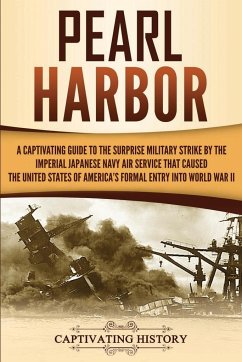
Mulberry-American: The Artificial Harbor at Omaha
Versandkostenfrei!
Versandfertig in über 4 Wochen
53,99 €
inkl. MwSt.

PAYBACK Punkte
27 °P sammeln!
The Overlord operation is a widely-studied episode in military history. Often overlooked is a little known U.S. operation designed to overcome logistical problems in the Overlord plan. For the first 90 days of combat the Overlord operation would not benefit from major ports to sustain the buildup and counter the German attempt to push the Allies back into the sea. The Allies planned, designed, and constructed two artificial harbors to overcome the lack of ports. The harbors were known by the code name, Mulberry. The components were towed across the English channel with the invasion fleet and c...
The Overlord operation is a widely-studied episode in military history. Often overlooked is a little known U.S. operation designed to overcome logistical problems in the Overlord plan. For the first 90 days of combat the Overlord operation would not benefit from major ports to sustain the buildup and counter the German attempt to push the Allies back into the sea. The Allies planned, designed, and constructed two artificial harbors to overcome the lack of ports. The harbors were known by the code name, Mulberry. The components were towed across the English channel with the invasion fleet and constructed under enemy fire. Mulberry A, the A stood for American, was completed three days ahead of schedule and doubled the throughput of U.S. supplies over the Normandy beachhead. Mulberry A was destroyed by a summer gale after only three days of operation and subsequently abandoned. Effective beaching LSTs during the operation led many critics to conclude that Mulberry A supply operations had little effect on the Overlord operation. To the contrary, using modern assessment methods, it can be concluded that the Mulberry operation was effective and influenced the outcome of the cross channel attack.














